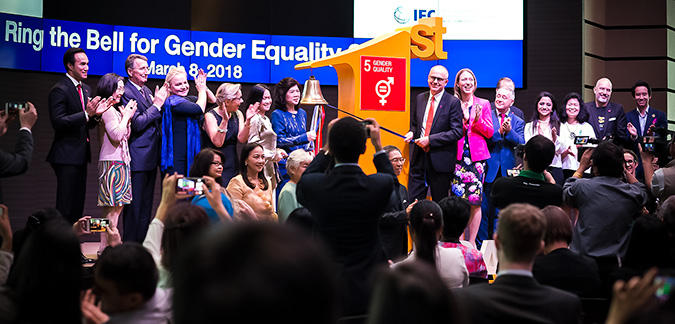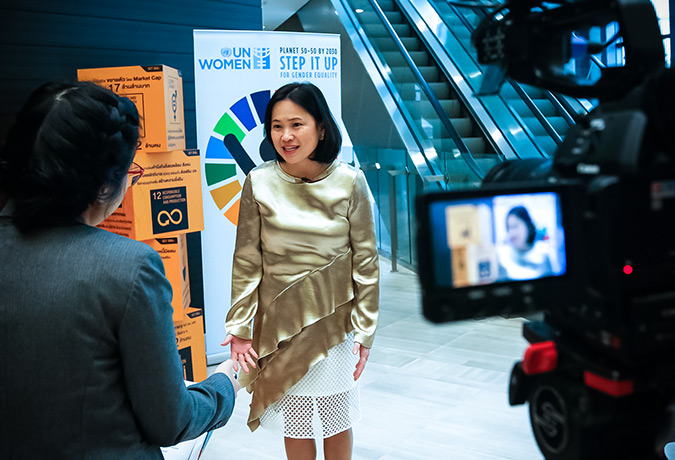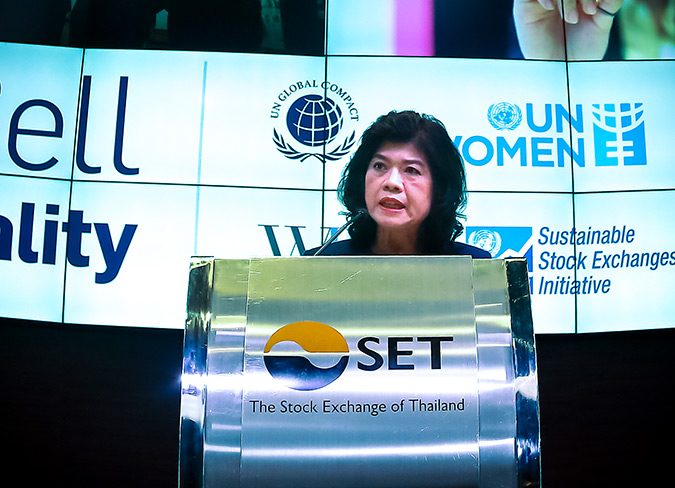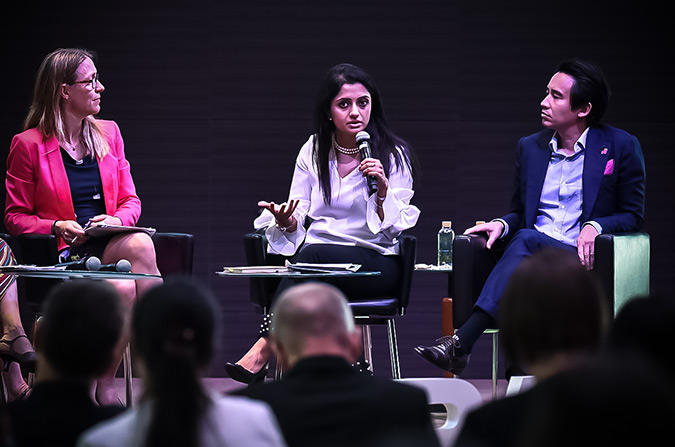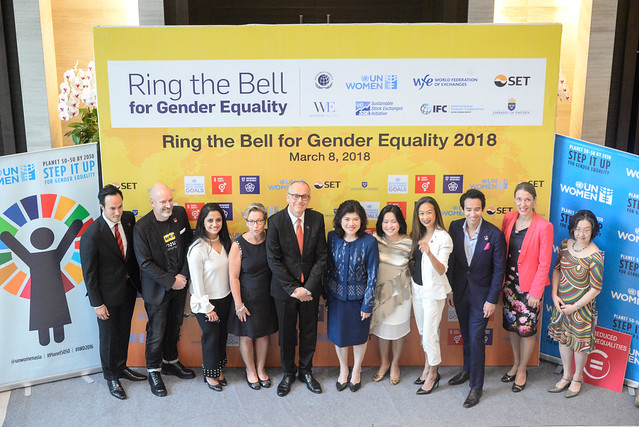Thailand's first "Ring the Bell" event highlights business case for gender equality
Date:
Author: Parista Yuthamanop
Bangkok, Thailand — Improving women's equal participation in the workplace is essential for the progress of the whole economy and wider society. This was the message at an event held at the Stock Exchange of Thailand (SET) on 8 March on the occasion of International Women's Day 2018.
The event titled "Ring the Bell for Gender Equality 2018" was the first of its kind in the country. It was attended by officials of the SET as well as representatives from the public and private sectors, who expressed enthusiasm for the promotion of gender equality and women's economic empowerment in the business sector.
The event is part of the global initiatives formed by UN Women and its partners to educate the business on their pivotal role. Thailand's first edition of the event was organized by UN Women, the SET and the Embassy of Sweden.
Women in the Asia and Pacific region face many challenges, such as negative social norms and perception of women, domestic violence, discriminatory justice systems, and a disproportionate burden of unrecognized, unpaid work. These factors have hindered women from realizing their full capacity in the workplace.
Thailand has progressed in many areas, particularly in the business sector. The numbers of women in leadership positions in the public and private sectors has increased, and there have been more women entrepreneurs over the past few years. But participants said they believed that the business sector must improve its understanding of gender equality and women's economic empowerment, and adopt policies that accommodate the aspirations of both women and men, with regards to their career as well as their family lives.
To alert the business sector to the priority of improving gender equality and women's economic empowerment, SET President Kesarsa Manchusree rang the bell to open the afternoon trading session.
It was followed by a panel discussion titled "Future of Work" by representatives of the business sector, the United Nations and academia. More than 150 participants took part in the event.
Miwa Kato, the Regional Director for UN Women Asia and the Pacific, said women are facing many forms of discriminations in the workplace. "If we want the global market where no one is left behind, one that generates decent work, reduces poverty, and improves livelihoods, then ensuring women's economic empowerment is a smart investment."
Kesara Manchusree, the president of the SET, said the Thai businesses have appointed more women as board of directors and CEOs, which reflects an inclusive business practice. "The progress of female participation must be addressed at its roots, which is equal opportunities for education, training, and recruitment," she stressed.
H.E. Mr Staffan Herrström said businesses should be able to recruit and create working conditions that support both fathers and mothers.
“It is just a bad business case not to use the full talent pool. If you use just 50% of the world’s, Swedish and Thai population, you miss the other half,” he said. “And you need to reflect your customers’ needs and have the kind of profile among your employees that help you reach out to ordinary people and those you need to serve.”
Fiza Farharn, a member of the UN Secretary General's High-Level Panel on Women's Economic Empowerment, said that to enable women to fully participate in the workforce requires efforts to tackle negative social norms, removing legal discriminations and improving employment conditions to accommodate women working in the formal sector, among others.
Mariko Kawagushi, senior analyst at Daiwa Institute of Research, said that women should participate more in the decision making of businesses to better serve women consumers.
Lars Svensson, IKEA South-East Asia's Sustainability and Communications Director, said that since the company introduced one-month paid paternal leave, it has attracted larger pool of talents for recruitment, and staff turnover has decreased. "Gender equality makes a business case," he said.
Pita Limjaroenrat, Executive Director of Grab (Thailand), said that the Thai society has gradually changed its perceptions in favour of gender equality, particularly in the workplace. "I hope this trend happens not just at the corporate side, but the social side too, such as with women working in the informal working sector."
